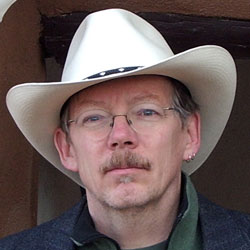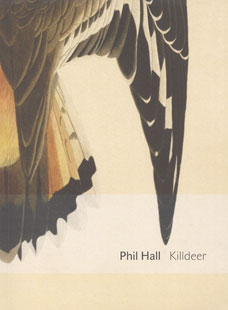
Biography
Phil Hall’s first small book, Eighteen Poems, was published by Cyanamid, the Canadian mining company, in Mexico City, in 1973. Among his many titles are: Old Enemy Juice (1988), The Unsaid (1992), and Hearthedral – A Folk-Hermetic (1996). In the early 80s, Phil was a member of the Vancouver Industrial Writers’ Union, and also a member of the Vancouver Men Against Rape Collective. He has taught writing at York University, Ryerson University, Seneca College, George Brown College, and elsewhere. He has been poet-in-residence at Sage Hill Writing Experience (Saskatchewan), The Pierre Berton House (Dawson City, Yukon), and elsewhere. Hall also currently works as a poetry manuscript midwife, a distance program offered by the Toronto New School of Writing. In 2007, BookThug published Phil’s long poem, White Porcupine. Also in 2007. he and his wife, Ann, walked the Camino de Santiago de Compostela. He is a member of the Writers’ Union of Canada, and lives near Perth, Ontario. Recent books include An Oak Hunch (shortlisted for the Griffin Poetry Prize in 2006) and The Little Seamstress. In 2011, he won Canada’s Governor General’s Award for Poetry for his most recent collection, Killdeer, a work the jury called “a masterly modulation of the elegiac through poetic time.”
Killdeer has also been shortlisted for the Trillium Book Award.
Judges’ Citation
“Straddling the thin line between argument and lyric, the ‘Essay-Poems’ of Killdeer are deceptively prosodic, and can switch from the stark and factual to short flights of startling, gorgeous lyricism: ‘Killdeer on my oozing stumps … Whipped the years’ butcher block rings to crèche shavings … Her desperate ruse has settled into gunwales – her closed cry a prow’s nib.’ Suspicious of artifice, surgically self-evaluating, Hall’s poems at once pay tribute to writers and friends who have shaped his sense of integrity while analyzing his own progress and methods as an artist. A record of private and imaginative growth, Killdeer builds a powerful narrative of recognition, attesting to the introspective mind’s capacity to transgress pain. This document of the examined life, through its hard-nosed accretion of realizations, is remarkably moving as it rows tenaciously between ‘islands of repair.’ Full of unease, gratitude, humour, intellectual and personal challenges, and not without bite, Killdeer is a testament to the creative life as an act of faith and transformation.”
Summary
These are poems of critical thought that have been influenced by old fiddle tunes. These are essays that are not out to persuade so much as ruminate, invite, accrue. Hall is a surruralist (rural and surreal), and a terroir-ist (township-specific regionalist). He offers memories of, and homages to, Margaret Laurence, Bronwen Wallace, Libby Scheier, and Daniel Jones, among others. He writes of the embarrassing process of becoming a poet, and of his push-pull relationship with the whole concept of home. In this book, the line is the unit of composition; the reading is wide; the perspective personal: each take a give, and logic a drawback. Language is not a smart aleck; it’s a sacred tinkerer. Readers are invited to watch awe become a we.
Note: Summaries are taken from promotional materials supplied by the publisher, unless otherwise noted.
Phil Hall reads Becoming A Poet
Becoming A Poet
A
On a Sunday morning in July 1973 I hitchhiked from Bobcaygeon to Lakefield to meet Margaret Laurence
When a ride let me off in Buckhorn I had breakfast at a counter on stools among fishermen – my eggs were scrambled and served by a one-armed man
I got to Lakefield about 10:00 – most people up that early were in church – I had a clipping from The Globe and Mail – a photograph of Laurence’s house
The Diviners had just been published – I had a copy with me – the first new hardback I ever bought
With the photo to help me I meant to find Laurence’s house & just knock
The previous winter I had finished my first year at the University of Windsor – where my English professor – Dr Huong – had said – without any hint of a question – You don’t know how to write a sentence do you
Nevertheless – even as I walked around Lakefield – my first little book of adolescent poems was being typeset atrociously in Mexico City
I can’t remember now what possessed me to seek out Laurence – but I hope it possesses me still
It wasn’t that I particularly cherished her writing – then – I was too inflated & dazed – having left the farm – having gone away to university
As maudlin as it sounds – of many generations of drunks I was the first to ever finish high school
Because of the imminent First Book I thought of Laurence & I as colleagues
Besides – she was living nearby in Lakefield now – & this proximity suggested family to me at nineteen
I had already begun to hunt for & invent a literary family to replace the one I had been born into & couldn’t abide
*
She wasn’t home – I knocked – twice – but not too hard – I was eager to hurry away – maybe it was the wrong house – was it too early – had she gone to church
I walked around the cemetery for an hour reading the stones (there were no Halls) & when I knocked again at 11:00 the door opened
An Eskimo woman in a patterned shift stood there smoking a flat cigarette – when she spoke I saw that her teeth were black
Her words were delivered with a confident slur & there was no poise – I loved her instantly
My dead mother’s teeth & smokes were the same
I apologized for knocking – for the early hour – for knocking earlier – for being there at all
Laurence seemed eager that I come in – she said she would like me to phone next time
Next time – was I to be a regular visitor – then – so easily
No – she was not addressing me specifically – but giving general advice to the numbers of visitors she had started getting lately – now that she was famous – even notorious – because of The Diviners
*
I’ve just finished wallpapering under the stairs here – & this wall – do you like it
Was the wall cream-coloured with purple irises – what did I know about home decorating
My mother used to buy plastic curtains
My dad & his girlfriend were having straight vodka for brunch right now in the ramshackle Iroquois Apartments in Bobcaygeon
I bought this the other day – too – & I think it goes so well against the new wallpaper here below the stairs – I’m not sure what you call these
It’s a chair – & the seat lifts up – so there’s storage underneath – & the back of the chair has this bevelled mirror – & there’s these coat hooks up here on both sides
There must be an actual name – it’s lovely – do you think – oak
Yes – to me furniture was still bricks & milk crates
What I could understand was this woman’s simple loneliness on a Sunday morning – her eagerness to find approval – & her pride in her home
I was ashamed to recognize what I thought of as weaknesses in her – I had no right – & they were not weaknesses
Now I know that if she could entrust her vulnerabilities to even me she must have taken the same risks with everyone – from her children outward to glomming strangers
She risked a generous grace
*
I want to go back & protect her from the likes of me
Her cat’s name was Amber – her rowboat – that her son had painted for her – was named CC Grant – this she told as a rehearsed joke
My son is worried that if the boat ever gets away in a flood I’ll never get it back because they’ll think its owner’s name is CC Grant when really the CC stands for Canada Council – Canada Council Grant – which is what paid for it
She ended with a slight drawl & swagger – held the moment – then punctuated it with a final drag on her cigarette – a side drag
I didn’t laugh when I should have because I didn’t know what a Canada Council Grant was
To cover for myself – I reaching into my yellow Army Surplus shoulder bag – pulled out my copy of The Diviners & asked if she would sign it for me
I also handed her poems – far too many – a crumpled bundle – I knew she didn’t write poems – I didn’t care
She said that she didn’t write poems but that she would read them & write me a letter about them
I thanked her & left – the hitchhike home took longer – the day was hotter – memory fails – having caught its limit
*
Eventually I got a typed letter from Laurence – she was too kind – I have so often put that letter in a special place for safekeeping that I forget where it is
It is somewhere – one of the reasons I write is because it is somewhere
When I want to revisit that meeting I rent & watch the NFB film First Lady of Manawaka or the shorter version for schools called Our Kinda Talk
The home interviews for that documentary must have been done shortly after The Diviners was published – so about the same time as my pilgrimage to Laurence’s house
The way she says darn sure chokes me up
*
It is by such encounters – brash – rude – naïve foolhardy or accidental – that we discover or select our lineages as writers
(I think – too – of Dorothy Livesay – late in life – stooping to touch my daughter’s hand – blessing her)
Margaret Laurence touched the hand I write with – otherwise my pen might belong nowhere – have no family – be part of no continuance
She touched many – deeply – & me merely in passing – but without her touch I might be as if one-armed
I would have to hit myself to clap
I might be silent
From Killdeer, by Phil Hall
© 2011 Phil Hall
More about Phil Hall
The following are links to other Web sites with information about poet Phil Hall. (Note: All links to external Web sites open in a new browser window.)
- Phil Hall backlist (Brick Books)
- Phil Hall profile (Canadian Poetry – University of Toronto)
- Phil Hall profile (Writers’ Union of Canada)
- 12 or 20 questions: with Phil Hall (rob mclennan’s blog)
- The Conversation: Phil Hall with Beth Follett (Open Book Toronto)
Have you read Killdeer by Phil Hall? Add your comments to this page and let us know what you think.

A wonderful write by Phil Hall, re visit to Margaret Laurence. I had never heard of him before now, July 24, 2013. However I am determined to learn more. Writing poetry is also my drive.